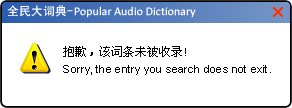钻研【zuān yán】
study intensively; dig into; delve into; go deep into
[动]深入研究
 所有的老师都喜欢懂得钻研问题的学生。 All of the teachers like the students who study intensively.
嘴【zuǐ】
mouth
[名]口的通称
 张开嘴,说出你的心里话。 Just open your mouth and say what is on your mind.
嘴巴【zuǐ ba】
mouth
[名]口
 咳嗽的时候请遮住嘴巴。 Cover your mouth when you cough.
|
嘴唇【zuǐ chún】
lip
[名]人及其他许多脊椎动物围绕嘴的两片肉质褶之一
 在秋天,我的嘴唇经常会因干燥流出血来。 In autumn, my lips often bled due to dryness.
最【zuì】
most; -est
[副]表示程度达到极点,超过所有同类
 好的父母和兄弟姐妹是人生最好的财富。 The best things in life are great parents and siblings.
最初【zuì chū】
initial; first; original; the very beginning
[名]刚开始的时候或时期
 最初的印象最深刻。 First impressions are most lasting.
|
最好【zuì hǎo】
1. had better; it would be best; may as well 2. best; the first rate
[副]1、劝说人做某事的委婉说法 2、胜过所有的人和物
 今天家里有客人,你最好早点回家。 You'd better come home early for we'll have guests today.
 这是他在所有比赛中的最好纪录。 This is his best performance in all the games.
最后【zuì hòu】
finally; at last; ultimately; eventually; in the end
[副]时间或次序上在所有其他的后面,最末
 最后,他们来到一个山村,在那儿安家了。 At last they came to a mountain village and settled down.
最近【zuì jìn】
lately; newly; of late; recently
[副]时间或距离最接近或最小的
 他最近几天心情不太好。 He is not happy recently.
|
